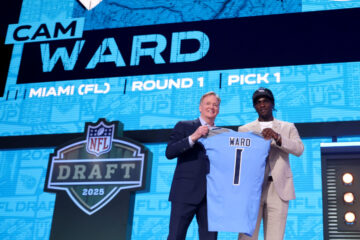As worries grow about market instability and a potential economic downturn, many American workers are prioritizing meeting the financial demands of everyday life — paying their mortgage or rent, managing increasing grocery and fuel costs, and addressing other essential expenses.
While dealing with these immediate challenges, they remain attentive to their future financial security, investing in 401(k) plans and Individual Retirement Accounts (IRAs) to prepare for retirement and ensure stability amid economic uncertainty.
Renowned author and former NBC Today Show financial editor Jean Chatzky offers a compelling warning on 401(k) plans and emphasizes the common issue of inadequate retirement planning.
💵💰Don’t miss the move: Subscribe to TheStreet’s free daily newsletter💰💵
Employer-sponsored 401(k) plans stand out as a dependable way to accumulate retirement funds, particularly when employers offer matching contributions.
Automatic paycheck deductions further simplify the process, ensuring consistent savings without requiring extra effort, making it a practical and efficient choice.
Related: Scott Galloway sends strong message on Social Security
In 2025, the maximum contribution limit for 401(k) plans has risen to $23,500, up from $23,000 in 2024. Workers aged 60 to 63 can take advantage of increased catch-up contributions, now up to $11,250, compared to $7,500 for those aged 50 to 59.
IRAs offer access to diverse investment opportunities not available through 401(k) plans. However, IRAs demand a more active role from users, who must establish the account and arrange automatic contributions independently. This added responsibility can lead some to overlook the potential benefits.
The contribution limit for IRAs remains $7,000 in 2025, with an extra $1,000 catch-up contribution available for those aged 50 and older.
Chatzky has a warning for American workers on retirement planning about which people would be wise to pay attention.
A retired couple is seen holding hands and walking on a beach. Former Today Show financial editor Jean Chatzky discusses 401(k)s and the fact that people often fail to plan well for retirement.
Shutterstock
Jean Chatzky warns on retirement and 401(k)s
In her book Money Rules: A Simple Path to Lifelong Security, Chatzky has a few words of wisdom and offers some advice.
“Financial plans don’t fail people. People fail to plan,” she wrote. “The only way to find financial security is to draw yourself a map. Folks who have specific financial plans that detail what they want — say, retirement at 67 with a paid-off mortgage, membership at the local golf club, and enough money to take two trips to the Caribbean a year — save more than people who don’t have specific financial plans.”
“Human beings are easily distracted (especially by shiny things). So unless you have a road map that tells you where you’re going, it is very, very hard to get there,” Chatzky continued. “It’s not that the map will never change. At which point you can make a new road map and follow that until, inevitably, you change your mind again. Revising your specific plans for the future is far better than not having any plans at all.”
More on retirement:
Scott Galloway sends strong message on Social SecurityJean Chatzky cautions U.S. workers on Social Security, retirement moneyDave Ramsey bluntly warns Americans about retirement
Chatzky also explains her belief about why 401(k) plans are effective.
“If you can’t see it and you can’t touch it, you won’t spend it,” she wrote. “This is why saving in a 401(k) plan works. The money is swiped out of your pay before it ever lands in your checking account so you never see it. It’s invisible, which makes it safe, for out-of-sight means you can’t pull it out of the ATM.”
Related: Dave Ramsey bluntly warns Americans about Social Security
Jean Chatzky explains barriers to taking money out of a 401(k)
Once money is contributed to a 401(k) plan, there are painful barriers to taking it out, Chatzky explained.
“If you did want to spend your 401(k) stash before age 59 and-a-half, you’d have to pay income taxes that can eat up 20 to 30 percent of your total, plus a 10 percent penalty,” she wrote. “That hurts.”
Chatzky also described other ways to save money.
“Don’t stop at a 401(k). Have money swiped out of your checking account as soon as you get paid,” she advised. “Barricade it by parking it in places that penalize you for early withdrawal like 529 college savings accounts, IRAs, and certificates of deposit. Even putting the money in an Internet savings account that doesn’t come with an ATM card can do the trick surprisingly well.”
Related: Veteran fund manager unveils eye-popping S&P 500 forecast


